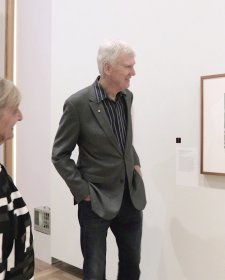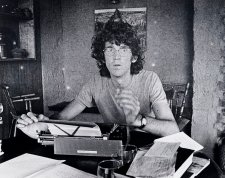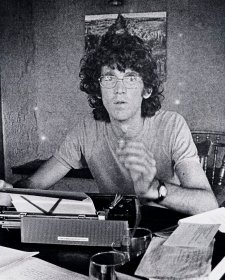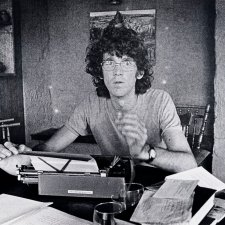David Williamson AO (b. 1942), playwright, studied and lectured in mechanical engineering and psychology before achieving success with his works for the stage. His early plays premiered at alternative theatres in Melbourne – The Coming of Stork (1970) and The Removalists (1971) at Betty Burstall’s La Mama, and Don’s Party (1971) at the Pram Factory in Carlton, home to the Australian Performing Group. Later, Williamson based himself in Sydney, recalling his Melbourne experiences as unhappy. From the outset, Williamson aimed to ‘get our own stories on stage, spoken in our own accents, reflecting our own life’. His plays, many of which he has scripted for films, include The Department, The Club, Travelling North, The Perfectionist, Emerald City, Brilliant Lies, Dead White Males, Heretic and Up for Grabs. His film credits include Stork (1971), Petersen (1974), Gallipoli (1980), The Year of Living Dangerously (1981) (the latter two collaborations with Peter Weir), Phar Lap (1982) and On the Beach (2000). Critics have carped about his works as they have accreted, but for decades he has been Australia’s best-known and most prolific playwright and he is unlikely to be eclipsed as the writer of many of the top box-office performers in Australian theatre history.
Gordon Glenn (b. 1948) worked as an assistant cameraman on the television show Homicide before becoming the stills photographer for the pioneering Australian journal Cinema Papers. He worked for the magazine from 1968 to the mid-70s, documenting production on the sets of films such as The Cars that Ate Paris, Between Wars, The True Story of Eskimo Nell, Caddie, Mad Dog Morgan, Don’s Party, and The Picture Show Man. He worked as a cinematographer on a number of independent films before moving to directing and producing feature films and television specials. In 2001 he produced the highly-acclaimed feature film Yolngu Boy (2001). This photograph accompanied an interview with Williamson in Cinema Papers of January 1974.
Purchased 2001
© Gordon Glenn



On one level The Companion talks about the most famous and frontline Australians, but on another it tells us about ourselves.



Australian playwright, David Williamson tells us tales from his career.



A reflection on the National Portrait Gallery's first four years.